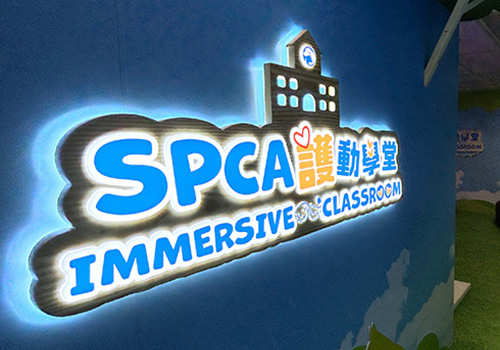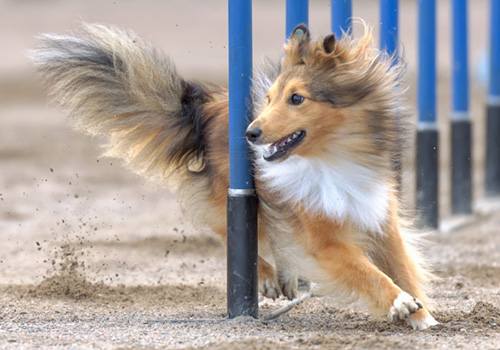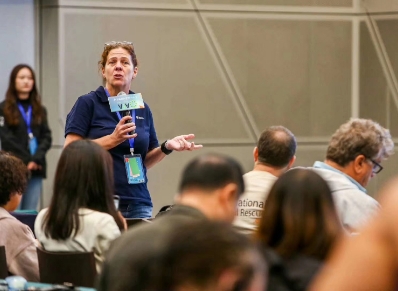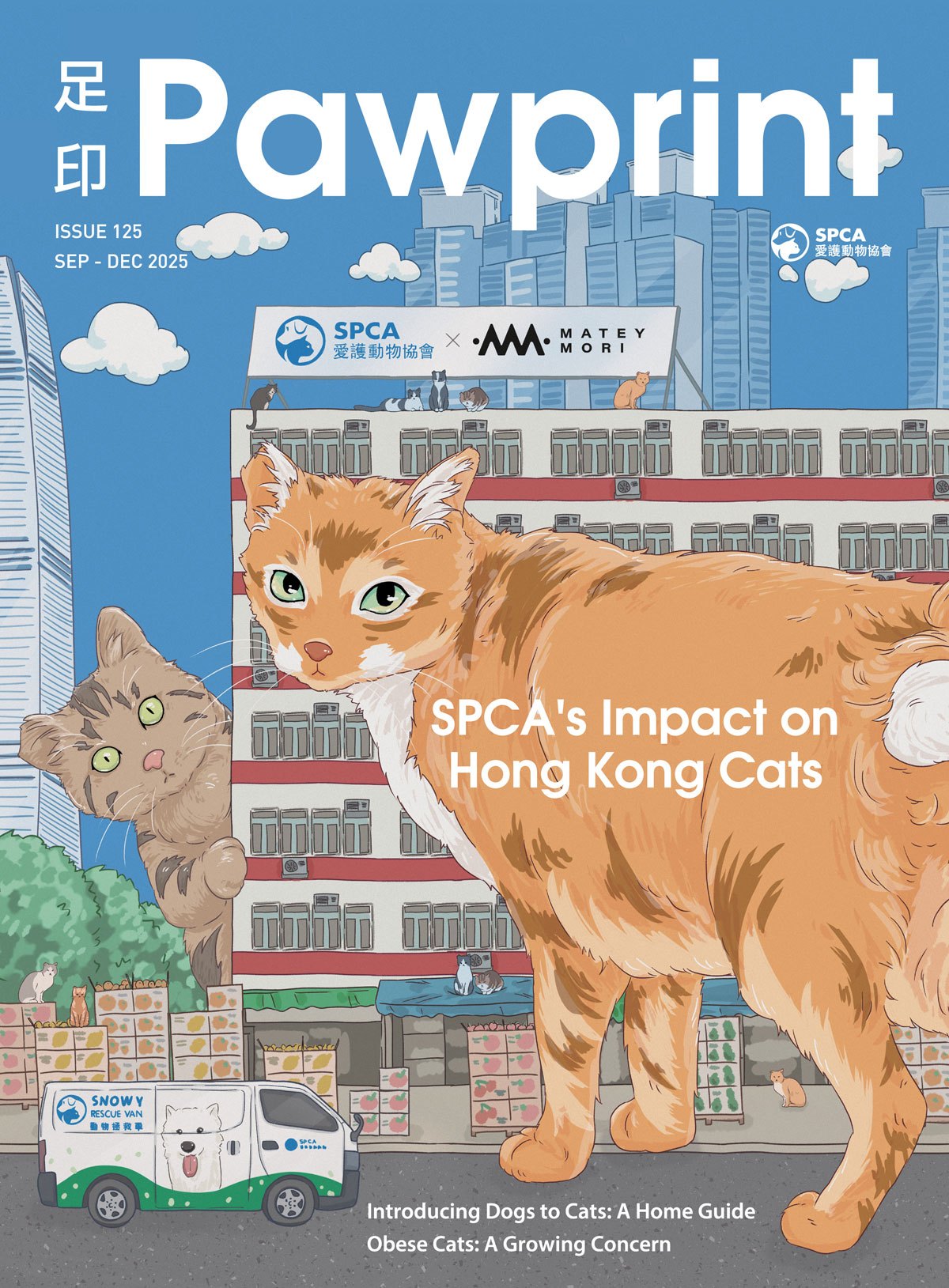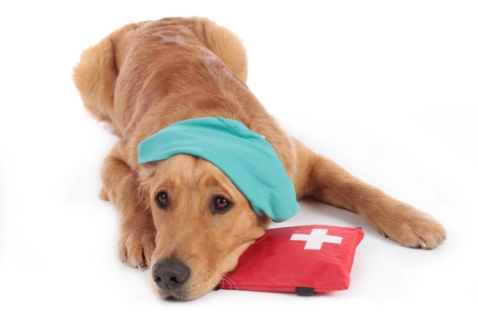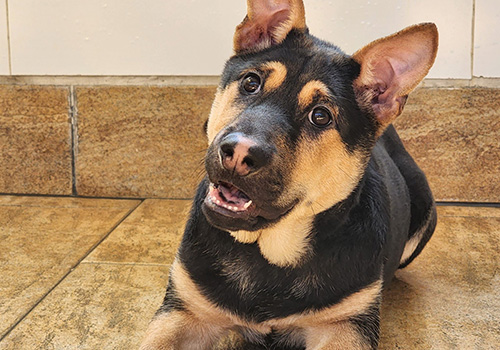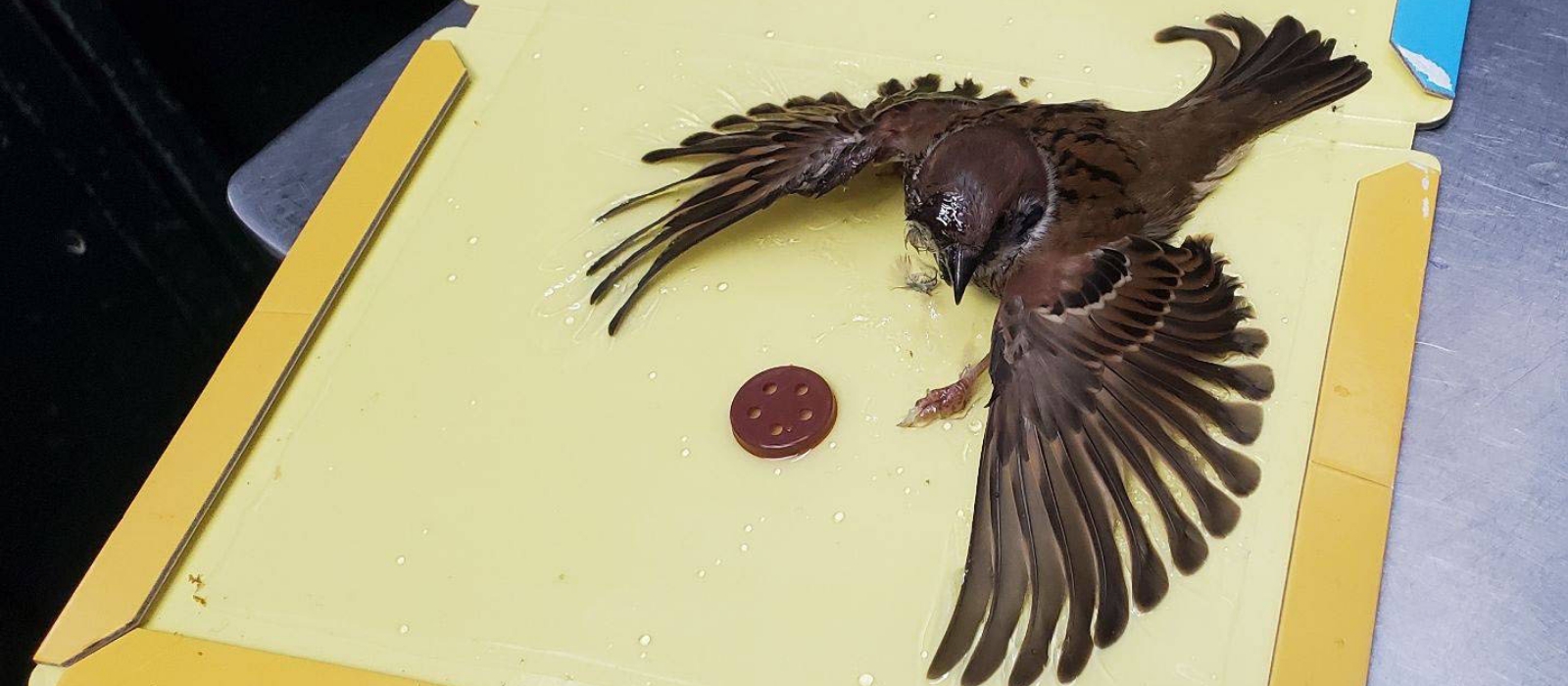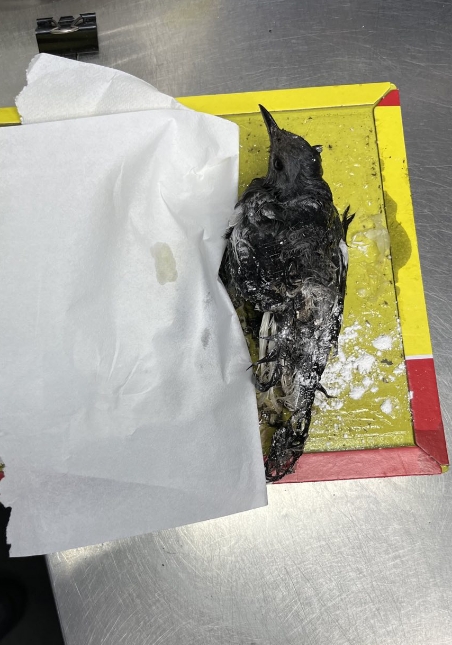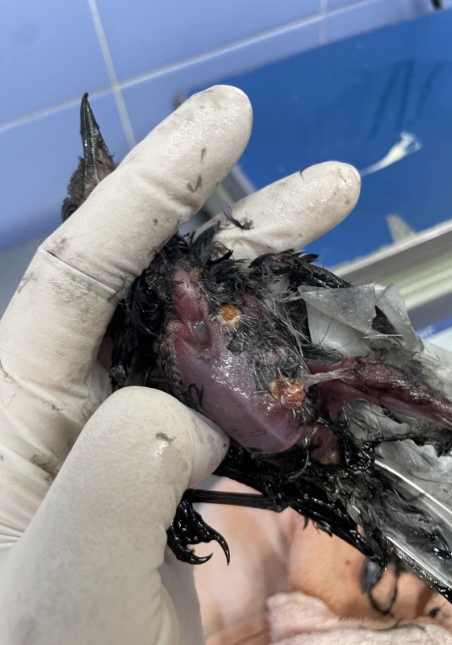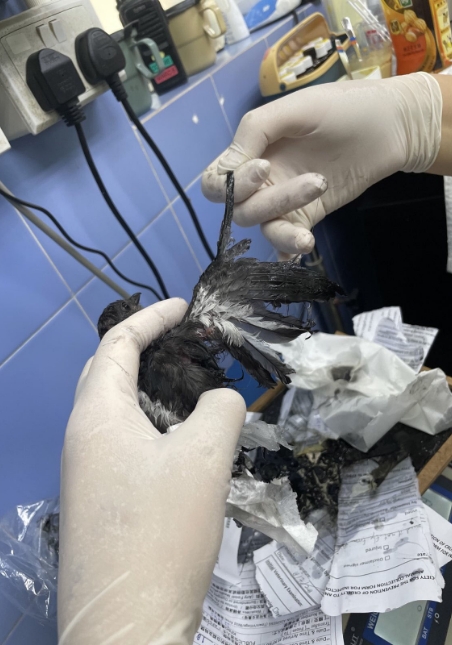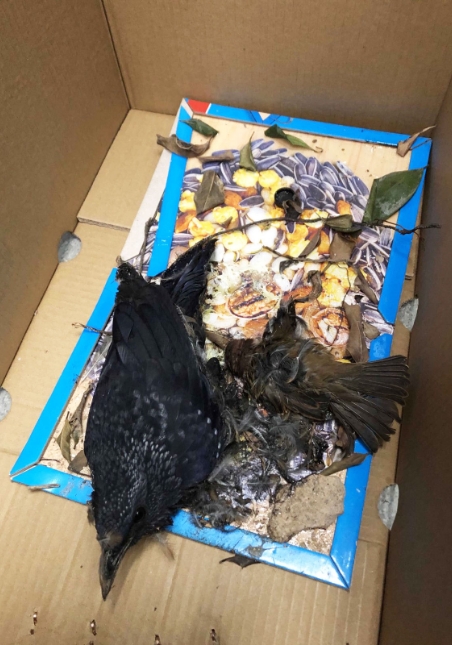Photo courtesy of KFBG
In February 2023, Kadoorie Farm and Botanic Garden (KFBG) called on the government to stop using glue traps after it found that at least 25 wild animals had been hurt by the traps – “an alarming increase” from previous years.
The problem with glue traps…
Glue traps are inhumane and can cause agonising pain for the victims. Trapped animals may try to escape which will end up damaging their skin, feathers or hair. Many animals are dehydrated and starved to death after the long torment of being trapped.
Although these glue traps are intended to capture rodents, many non-target animals have become victims of glue traps, including… cats as well as other small animals such as birds and lizards.
KFBG listed the species of 25 birds it has found trapped, including oriental magpies, spotted doves, Chinese bulbuls, Daurian redstarts, Eurasian tree sparrows, Chinese pond herons, dusky warblers and blue whistling thrushes – all of which are protected under the Wild Animals Protection Ordinance.
Glue traps aren’t the only problem…
Improper use of any rodent control measures will also cause suffering in non-target animals. For example, there have been numerous cases of dogs being poisoned by rat bait due to improper placement and the lack of clear warning signage to dog owners.
What’s being done about it?
The use of glue traps is prohibited in New Zealand and Ireland, but yet to be banned in Hong Kong.
The SPCA has been discussing rodent control solutions with different government departments aiming to minimise animal suffering.
- Some solutions include:
A more humane rodent-control methodology focusing on the fundamental underlying issues that support and encourage rodent populations such as:- the elimination of the food sources
- maintaining tidy and hygiene environments which in turn reduces the hiding places of rodents should be the basis of any rodent control programme
- regulation of the use of rodent control measures i.e. establishing a licensing system and clear guidelines
If you discover a trapped animal…
Cover any exposed areas of the glue surface of the trap with newspaper, paper towels or other nontoxic items. Place the animal (and trap) in a secure container and move it to a warm, dark, quiet location to reduce stress and shock. Contact SPCA 24-hour hotline at 2711 1000 or AFCD at 1823 for further advice and animal rescue assistance.
Please do not attempt to handle the animal by yourself, as improper care may cause further injury and suffering.
To support our inspector’s animal rescue efforts, please click here to donate and mark “Inspector Fund” under “Others”:

